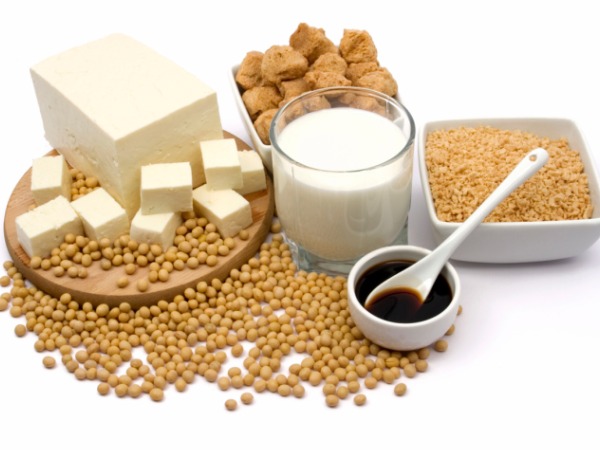Best Probiotics for Kids
How good are probiotics for kids? What are the proven benefits? How do you go about choosing probiotics in form of pills liquids for your kids. What are the best brands? Read on to find out more
How Beneficial are Probiotics for Kids
Research shows that, most children lately prefer the fast moving foods. These foods are however considered to be unhealthy since they contain high content fats which may be a red flag to the baby’s health. 0.8 of the child’s immune system can be located in the gut area. There is need to therefore keep control of the bacteria around the gut of the child. This is done by the parent doing everything possible to support the good microbes found in the child’s gut. Most parents have managed to maintain good health of their children by seeking probiotic supplements of high quality for their children.
It has clearly come out that manufacturing processes are able to change the way in which a probiotic is beneficial and the way it works in the child’s body.
There is also a likelihood that the effects of a probiotic depends on the strains that it comes with.
There is also studies that show that several probiotics are likely to inhibit the benefits and functions of others, according to Christensen et al 2002.[1]
Benefits
Probiotics aid in the kid’s digestion and release of very essential nutrients. Anything that helps in digestion of food for your kid is important. Remember, growth of your kid is based on how well the food is digested to release nutrients. Proper digestion of food in the body of the kid saves her or him a lot of other complications arising as a result of indigestion.
According to the Cleveland clinic, your young one can benefit from the use of probiotics in that they generally help to relieve constipation, acid reflux, diarrhea symptoms as well as flatulence. Some other researches allude to the fact that they can also help improve gut immunity and oral health, then help manage eczema.[2]
To be specific, probiotics first are necessary for the comfort of the kid’s intestine. There is research that shows that, a child who takes probiotics has regular elimination, less gas, reflux, and even colic. Sometimes, kids have intestinal problems especially when digestion does not go well for them. Probiotics help prevent such discomforts by helping out digestion.
It is also prudent to know that as the kid grows and develops, probiotics support the health of the brain. There are researchers who refer to the kids gut as the second brain. This so because, discovery shows that the gut is directly linked to the brain. That close connection between the gut and the brain of the kid requires that the health of the gut must be supported fully. Probiotics are therefore good for your kid in order to keep her or his brain in good shape.
According to the NCBI resources, it is evident that probiotics can be of great benefit to your kid. The journal of Translational Immunology provides supportive evidence that they can be used to balance the generation of pro and anti-inflammatory cytokines in the gut. This in return brings about the down-regulation of inflammatory mediators like alpha-1, tumor necrosis factor and transforming growth factor beta. In the process, they try to counteract the inflammatory process by stabilizing the gut microbial environment as well as the permeability of the intestines and by enhancing the degradation of enteral antigens and altering immunogenicity.[3]
Apart from that, the probiotics also play a key role in immunomodulation. This is shown by their effects on immune mediators called cytokines, immunoglobulin production and serum parameters of inflammation.
According to current medical literature, it is evident that probiotics in infants have been great relief for kids suffering from diarrhea that is brought about by viral gastroenteritis. It is mostly suitable if the diarrhea is experienced for a shorter duration of about one day. Some studies also point out that they may also help to reduce the diarrhea that is brought about by antibiotics.
Supportive research also shows that probiotics help to prevent necrotizing enterocolitis or death of intestinal tissue in infants born weighing more than 1000 grams. With regards to allergic reactions, probiotics also play a great role. This is one of the reasons mothers are advised to feed their children with probiotics since they serve as barriers to entry of foreign materials that lead to allergic reactions. This protects the baby from any foreign invaders interfering with the kid’s health. It is the healthy micro flora; build after intake of probiotics that help to maintain normal allergic reaction
On the other hand, probiotics also have a hand in influencing the weight of the kid and adults. This is because they promote a balance in the child’s weight and influences the child’s metabolism. This is possible since beneficial bacteria can grow and survive if the kid takes probiotics. Research further shows that, to maintain a manageable weight of the kid, the gut microbes must have a healthy balance. This healthy balance is supported a great deal by the probiotics given to kids.[4]
In form of probiotics, lactic acid helps treat possibility of skin conditions that lead to dry and itchy skin. You all know how irritating a skin that is dry is, nobody therefore wants such discomfort for their children. Probiotics are the answer to such skin condition possibilities, commonly referred to as infantile eczema. This simply means possible infections on the infant’s skin. Probiotics can also help in treating other skin problems such as eczema and acne.
Probiotic bacteria ensure that your kid does not suffer from severe common colds; this is especially during cold seasons. It is advisable that you ensure your child feeds on probiotics all through especially when it is too cold and the child is likely to get a common cold. Apart from just helping control common colds, a kid is safe from respiratory infections for the first two years of life if he or she consistently takes antibiotics.
Forms (Liquid, Pills /Capsules) and how to take
There are different forms of probiotic supplements available for Kids. They are all a source of health benefits if at all the mother follows all necessary directions when feeding the kid. If you are not sure of which is right for your kid,it is highly that you seek medical advice from a qualified healthcare practitioner on details such as dosage. This is because any excesses can interfere with the way probiotics work.
Liquid-Probiotic drinks for kid (directions and Dosage)
Out of the many forms of probiotics, liquid probiotics are most preferable for your kid. This is due to the rate at which they are absorbed. Research shows that, once taken, liquid probiotics are absorbed between the first twenty to thirty seconds. Faster absorption means fast results for the kid’s good health. In addition, it is easier to give the child liquid drinks as opposed to other forms of drugs like pills.
Usually, dosage is determined by looking at the number of organisms in the probiotic drinks. These drinks can be added to foods. Kid’s dose ranges from one to ten billion organisms. Usually, the kids could be given the probiotic drink after every twelve hours for five days.
It is important to ensure that the child takes the probiotics two hours before or after taking antibiotics. This is so as to ensure the working of the drug is not interfered with. It is always best to consult your doctor before administering any probiotics.
Probiotic pills for children (directions and Dosage)
Depending on the type of pill, children are supposed to take pills whose colony forming units range between; five to ten billion. This should be administered each single day depending on the doctor’s prescription. Like the liquid probiotics, best results are observed after three to five days. Ensure your kid does not take the pills for less than three days.
It is also important to note that you can dissolve the pills in pure water to make it easy for the kid to take in as well as to aid in absorption. It is always difficult to get a kid to swallowing pills so just powder it and dissolve it in water.
Chewable/gummy probiotic for kids (Directions and dosage)
These are flavored tablets that are chewable by kids once they are grown enough to chew. These are such as culturelle probiotics and are known to contain lactobacillus GG. For best health benefits, you are advised to give your child one chewable probiotic flavored tablet. The kid enjoys the chewing and in the end gains extremely good balance of good bacteria in her or his digestive tract. This is one way of keeping the kid’s immune system strong and hence; the kid is safe from falling sick.[5]
Selecting the Best Probiotic for Kids
What are the key things to consider when selecting the best probiotic for your kid?
Given there are several forms of probiotic, you need to fully understand the health of your kid before choosing the probiotics for her or him. In order to choose the best probiotic, the following are considered;
- strains.
As much as the number of bacteria contained in any product is important, the strains present is an even more important consideration. There are strains which must be included for the probiotic to result to the best health of the kid. These include; l. acidophilus, longum, and B fidum. These are the primary probiotic strains that must be present. Others include; L. fermentus and L. rhamose.
- Packaging and formulation
Enticements are added to motivate the children towards taking the probiotics. Such additions include; citrus or sweet flavors. Other probiotics are made gummy so that they are easy for the children to consume. Children may prefer chewing and hence, chewable probiotics in this case will be preferred. However, in cases where children have chewing problems or even issues with their gums, the chewable probiotics are not advisable.
It is also important to ensure that the probiotics bought do not need refrigeration as such additional requirement may complicate storage of the probiotics. Maintaining the correct temperature all through may therefore pose a great challenge. This makes it crucial to check the storage requirements before purchase.
- Delivery system
Microorganisms in probiotics are beneficial to the kid’s digestive tract only if they are alive. Like temperatures that are unbearably high, stomach acid can lead to death of the microorganisms.
A probiotic should be such that it is in good shape up to the time it reaches the required area, such as the intestines. If tampered with before getting to the intestines, the probiotics will definitely miss the intended goal. Choose probiotics that will be protected until they accomplish their role in the kid’s body. In this case, researchers say tablets are a better option.
- Expiration date
Sometimes, people overlook the expiration dates. This is however very crucial information about any given product. A manufacturer in this case will have estimated the live of the active bacteria. Using the probiotics beyond such stated dates is therefore a great risk any one would be taking. Expired products may not only fail to work for the kid but they may as well be very harmful.
Also check if they require to stored in a fridge or not. Here is a guide on refrigerated and non-refrigerated probiotic supplements
When selecting a probiotic, choose one that has a longer expiry date as that means the live of the microorganisms is way longer.
- Money back guarantee
How much a company stands by its product, in this case, a probiotic product, is shown by its money back guarantee.[6]
Best Probiotic Supplements and Brands for Kids
The tabulation below outlines the breakdown of the various probiotics and some of their qualities and more details.
| Probiotic Name/Brand | Brief Description of key features/Strengths | key Ingredients | CFU | Price range |
| 1. Nature plus Acidophikidz | Has intestinal floral that maintains gastrointestinal balance which is important for your kid.
It is gluten free making it even healthier. Has a mixed berry flavor that the kids enjoy. | · B. coagulans
· Rhododendron caucasium · Fructooligosacchirides | 5 billion | (17-20) per bottle |
| 2. Delpro-Natural Probiotic Supplements for immune System Health | Contains Del-immune V plus which boosts immunity. This is a probiotic that boosts the health of the intestines.
Delpro probiotic supplements are known to maintain the balance of the kid’s tract balance. | · Lactobacillus acidophilus
· Bifidobacterium bifidum · Lactobacillus delbrueckii · Del-Immune V powder · Lactobacillus casei · Bifidobacterium longum
| 3 billion | A bottle of Delpro 150 capsule -57.50 Trial special-67.50 |
| 3. Rainbow light probiolicious Gummies | It is gluten and soy free hence maintains a healthy digestive system.
It is a multi –function probiotic hence keeps your kid healthy. | · lactobacillus supergenes
· Bio-active probiotic Defense per serving · Prebiotics from insulin | 1 billion Bio active probiotic defense | 11 to 50 |
| 4. Garden of life RAW probiotics kid Culturelle | Has organic whole food probiotics Is gluten free hence safe for your kid. | Raw insulin Organic and raw vegetables and fruits | About 5 million | $19 per 96 grams |
| 5. Kids probiotic packets | Has ability to prevent bloating and other associated gas complications | Dairy free formula
Natural lactobacillus GG | 5 billion | $19-30 per box |
| 6. Number one Nutrition Advance Probiotic | Made using a vegetarian formula.
It is based on what is natural. This makes it crucial in boosting the kid’s immune system. It is also known to improve colon health.[7] | · Acidophilus
· Lactobacillus | 10 billion | $20 per bottle |
Other good Sources of probiotics for kids
If you do not prefer probiotic supplements, you can still get from other sources such food. The best sources of friendly bacteria are dairy foods such as yogurt, kefir (which is similar to yogurt), and aged cheeses such as cheddar and gouda. The foods not only provide probiotics but also vital nutrients like protein, calcium, and, in some cases, vitamin D, which are more reasons they’re smart food choices. There is evidence that the live cultures in yogurt can help both kids and adults who have a lactose intolerance, which makes it hard for them to digest lactose, the natural sugar in milk. Here is more in best probiotic drinks
Possible Probiotics Side Effects in Kids
Probiotics are really necessary and essential for kids. However, there are side effects that arise as a result of using certain probiotics for quite a long time without breaks. The side effects in children who use probiotics are similar to those in adults. The only difference is that, the side effects are more severe in the case of ch9ildren as compared to adults. The side effects and possible solutions are as discussed below;
- Infections
When children take probiotics, they are able to treat infections such as the common cold. However, if the kid experiences a weak immune system, there might be an underlying infection and taking antibiotics may only worsen the condition. It is possible to take antibiotics and prevent infections as a side effect. This is by ensuring that proper tests are carried out as concerns the health of the kid at the time she or he takes probiotics. This is so as to get the necessary medical advice.
- Intestinal gas
Lactobacilli and Bifidobacteria are examples of gas producing bacteria that are found in probiotics. Usually, these bacteria are broken down to produce lactic acid. Intestinal gas has been pointed out as the most common side effect experienced by kids who take antibiotics. Intestinal gas in never a very serious side effect not unless the kid also experiences watery stool among other symptoms. A physician should be contacted should the symptoms persist.
It is possible to avoid the side effect by reducing the amount of probiotics given to the kid. The higher the amount of probiotics the more likely is the kid to experience intestinal gas complications.
- Bloating
This is a similar side effect to that of intestinal gas. Bloating in children after taking probiotics involves gas building up in the intestines. Children with poor immune systems are more likely to experience bloating which could be extremely painful avoid possible bloating. It is important for the mother to consult the doctor on what probiotic to take by clearly defining the kid’s immune system.
Bloating is more severe in children and it not only comprises of gas build up in the intestines but also in the stomach. To save your kid such pains, yet obtain maximum benefits of probiotics, control the amount of probiotics that kid takes. It is also important to consult your doctor on quantities that are most preferable for your kid.[8]
Sources
[1] http://www.parentingscience.com/probiotics-for-kids.html
[2] https://health.clevelandclinic.org/2016/04/child-can-benefit-probiotics/
[3] http://www.greenmedinfo.com/blog/27-probiotic-benefits-children
[4] http://www.webmd.com/children/news/20101128/children-may-benefit-from-probiotics-prebiotics
[5] www.biocare.co.uk/default.aspx?GroupGuid=1062
[6] http://naturopathicpediatrics.com/2016/03/06/how-to-choose-best-probiotic-baby-child/
[7] https://www.safety.com/blog/probiotics-for-kids-guide/
[8] www.livestrong.com/article/374487-side-effects-of-probiotics-on-children/


